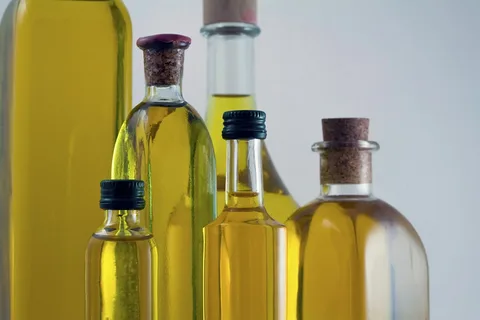Introduction to Deep Frying and Cooking Oils
Deep frying involves submerging food in hot oil, which cooks the food quickly and creates a crispy exterior while sealing in moisture. While deep frying can result in deliciously indulgent dishes, the choice of cooking oil plays a significant role in determining the overall healthiness of the fried foods.
Cooking oils vary in their smoke points, flavor profiles, and nutritional compositions, all of which influence their suitability for deep frying. Factors such as stability at high temperatures, resistance to oxidation, and levels of saturated, monounsaturated, and polyunsaturated fats are crucial considerations when selecting the healthiest oil for deep frying.
Characteristics of Healthy Cooking Oils
When assessing the healthiness of cooking oils for deep frying, consider the following characteristics:
Smoke Point
The smoke point of an oil is the temperature at which it begins to break down and produce smoke. Oils with high smoke points are suitable for deep frying, as they can withstand the high temperatures required without burning or imparting off-flavors to the food.
Fat Composition
Healthy cooking oils should contain predominantly unsaturated fats, such as monounsaturated and polyunsaturated fats, which have been associated with heart health benefits. Oils high in saturated fats are less desirable for deep frying due to their potential to raise cholesterol levels.
Stability
Oils that are stable at high temperatures and resistant to oxidation are preferable for deep frying, as they are less likely to form harmful compounds when heated.
Healthiest Oils for Deep Frying
Several cooking oils are well-suited for deep frying due to their high smoke points, favorable fat compositions, and stability. The healthiest oils for deep frying include:
Canola Oil
With a smoke point of around 400°F (204°C) and a neutral flavor, canola oil is a popular choice for deep frying. It contains predominantly monounsaturated fats and is relatively low in saturated fats, making it a heart-healthy option.
Sunflower Oil
Refined sunflower oil has a smoke point of approximately 450°F (232°C) and is rich in vitamin E, an antioxidant that helps protect cells from damage. It has a mild flavor and is suitable for deep frying a variety of foods.
Peanut Oil
Peanut oil has a high smoke point of about 450°F (232°C) and a distinct nutty flavor, making it ideal for deep frying. It contains primarily monounsaturated fats and is commonly used in Asian cuisine for its flavor-enhancing properties.
Safflower Oil:
Safflower oil has a smoke point of around 450°F (232°C) and a light, neutral flavor. It is high in polyunsaturated fats, particularly omega-6 fatty acids, which may have anti-inflammatory effects when consumed as part of a balanced diet.
Avocado Oil
Avocado oil has a very high smoke point of approximately 520°F (271°C) and a mild, buttery flavor. It is rich in monounsaturated fats and contains various antioxidants, vitamins, and minerals, making it a nutritious option for deep frying.
How to Deep Fry Safely and Effectively
While selecting the healthiest oil for deep frying is important, it’s also essential to practice safe and effective frying techniques to minimize the absorption of oil and ensure food safety. Here are some tips for deep frying safely:
Maintain the Right Temperature
Use a deep fryer or a deep, heavy-bottomed pot with a thermometer to monitor the temperature of the oil. Keep the oil temperature between 350°F to 375°F (177°C to 191°C) for optimal frying results.
Avoid Crowding the Fryer
Fry food in small batches to prevent overcrowding the fryer, which can lower the oil temperature and result in soggy, greasy food.
Use a Slotted Spoon or Basket
Use a slotted spoon or basket to lower food gently into the hot oil and remove it when cooked. This helps minimize splattering and ensures even cooking.
Drain Excess Oil
After frying, transfer the food to a wire rack or paper towels to drain excess oil and help maintain its crispy texture.
Store Oil Properly
Store used cooking oil in a cool, dark place in an airtight container to prevent oxidation and rancidity. Dispose of used oil responsibly or recycle it if possible.
FAQs
Can I reuse cooking oil for deep frying?
Yes, you can reuse cooking oil for deep frying multiple times if properly filtered and stored. However, avoid reusing oil that has become dark, foamy, or has a strong odor, as it may have degraded and become rancid.
Is coconut oil good for deep frying?
While coconut oil has a high smoke point and contains healthy saturated fats, its strong coconut flavor may not be suitable for all fried foods. Refined coconut oil, which has a milder flavor, can be used for deep frying if preferred.
Can I mix different oils for deep frying?
Yes, you can mix different oils for deep frying to achieve a desired flavor profile or enhance the nutritional composition. Experiment with different oil blends to find combinations that work well for your recipes.
How can I dispose of used cooking oil safely?
Allow used cooking oil to cool completely, then pour it into a sealable container and dispose of it in the trash. Alternatively, check with local recycling centers or waste management facilities for options to recycle used cooking oil.
Can I deep fry with olive oil?
While extra virgin olive oil has a lower smoke point and strong flavor, refined olive oil or light olive oil can be used for deep frying due to their higher smoke points and milder flavors.
How can I reduce the amount of oil absorbed by fried foods?
To minimize oil absorption, ensure the oil is at the correct temperature before frying, avoid overcrowding the fryer, and allow fried foods to drain on paper towels or a wire rack after cooking.
Can I reuse oil after frying fish or other strongly flavored foods?
It’s generally best to avoid reusing oil after frying strongly flavored foods, such as fish or seafood, as the flavors can transfer to subsequent batches of fried foods. Consider using separate oil for frying different types of foods to preserve their flavors.
Conclusion
Choosing the healthiest oil for deep frying is essential for achieving crispy, golden-brown results while maintaining optimal health and wellness. Oils with high smoke points, favorable fat compositions, and stability at high temperatures, such as canola oil, sunflower oil, peanut oil, safflower oil, and avocado oil, are ideal choices for deep frying. By following safe frying techniques and incorporating these healthy oils into your cooking routine, you can enjoy delicious fried foods with confidence and peace of mind. Remember to practice moderation and balance in your diet, and savor the crispy goodness of homemade fried favorites responsibly.
- How To Get Rid Of Lip Filler Swelling Fast - May 2, 2025
- Exosome Therapy For Skin Rejuvenation Near Sidlow Bridge, Surrey - May 2, 2025
- Cheek Filler Near Puttenham, Surrey - April 30, 2025


